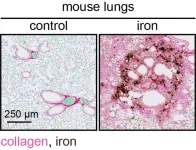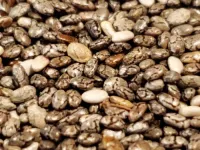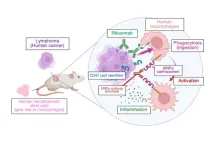Those who binge drink and have a certain genetic makeup are six times more likely to develop alcohol-related cirrhosis, according to new research from UCL, the Royal Free Hospital, the University of Oxford and the University of Cambridge.
The study, published in Nature Communications, is the first to assess how an individual’s pattern of drinking, their genetic profile (via a polygenic risk score) and whether or not they have type-2 diabetes affects their risk of developing alcohol-related cirrhosis (ARC).
The observation that pattern of drinking is more important than volume, coupled with the increased risk when genetic makeup and type-2 diabetes are also present, provides more accurate information with which to identify those most vulnerable to liver disease.
Liver disease is one of the major causes of premature death globally, with 2-3% of the world’s population having cirrhosis (scarring of the liver) or liver disease. Since the COVID-19 pandemic began, alcohol-related deaths have risen by 20%.
In this study, researchers analysed data from 312,599 actively drinking adults in the UK Biobank cohort, to assess the impact of pattern of drinking, genetic predisposition and type-2 diabetes on the likelihood of developing ARC.
A baseline hazard ratio (HR) of one was set using data from participants who reported drinking within daily limits, had low genetic predisposition to ARC and were free of diabetes.
Those who engaged in heavy binge drinking, which is categorised as having 12 units in a day at some point during a week, were three times as likely to develop ARC. The risk for those with a high genetic predisposition was four times higher and the risk for type-2 diabetics was two times higher.
Dr Linda Ng Fat, a first author of the study from UCL Epidemiology & Public Health, said: “Many studies that look into the relationship between liver disease and alcohol focus on the volume of alcohol consumed. We took a different approach by focusing on the pattern of drinking and found that this was a better indicator of liver disease risk than volume alone. The other key finding was that the more risk factors involved, the higher the ‘excess risk’ due to the interaction of these factors.”
When heavy binge drinking and high genetic predisposition were at play, the risk of developing ARC was six times higher than the baseline risk. The addition of type-2 diabetes as well resulted in an even greater risk.
Dr Gautam Mehta, a senior author of the study from UCL Division of Medicine and the Royal Free Hospital, said: “Only one in three people who drink at high levels go on to develop serious liver disease. While genetics plays a part, this research highlights that pattern of drinking is also a key factor. Our results suggest, for example, that it would be more damaging to drink 21 units over a couple of sessions rather than spread evenly over a week. Adding genetic information, which may be widely used in healthcare over the coming years, allows an even more accurate prediction of risk.”
Though polygenic risk scores are not in widespread clinical use at the moment, they are likely to become more commonly used as a method of defining personalised disease risk.
Dr Steven Bell, a senior author of the study from the University of Cambridge, said: “As liver disease, particularly alcohol-related fatalities, has seen a significant surge since the onset of the COVID-19 pandemic, it is imperative that we adopt innovative strategies to address this escalating crisis. This study equips us with novel tools that are essential in pinpointing individuals at highest risk, thereby enabling us to direct interventions more effectively towards those who stand to benefit the most.”
Pamela Healy, Chief Executive of the British Liver Trust said, “This research is important because it reveals that it’s not just how much you drink overall but the way that you drink matters. Drinking a lot, quickly, or drinking to get drunk can have serious consequences for your liver health. Over the last twenty years, as alcohol has become more accessible and affordable, there has been a disconcerting shift in the UK's drinking culture. The UK needs to tackle increased alcohol consumption through a joined up ‘alcohol strategy’ that includes taxation, stronger controls on alcohol advertising and marketing and improved awareness of the dangers of binge drinking.”
Notes to Editors:
For more information, please contact:
Dr Matt Midgley
+44 (0)20 7679 9064
m.midgley@ucl.ac.uk
Publication:
Chengyi Ding and Linda Ng Fat et al. ‘Binge-Pattern Alcohol Consumption and Genetic Risk as Determinants of Alcohol-Related Liver Disease’ will be published in Nature Communications and is strictly embargoed until Thursday 14 December 2023 10:00 GMT / 05:00 ET
DOI: https://doi.org/10.1038/s41467-023-43064-x
About UCL – London’s Global University
UCL is a diverse global community of world-class academics, students, industry links, external partners, and alumni. Our powerful collective of individuals and institutions work together to explore new possibilities.
Since 1826, we have championed independent thought by attracting and nurturing the world's best minds. Our community of more than 50,000 students from 150 countries and over 16,000 staff pursues academic excellence, breaks boundaries and makes a positive impact on real world problems.
The Times and Sunday Times University of the Year 2024, we are consistently ranked among the top 10 universities in the world and are one of only a handful of institutions rated as having the strongest academic reputation and the broadest research impact.
We have a progressive and integrated approach to our teaching and research – championing innovation, creativity and cross-disciplinary working. We teach our students how to think, not what to think, and see them as partners, collaborators and contributors.
For almost 200 years, we are proud to have opened higher education to students from a wide range of backgrounds and to change the way we create and share knowledge.
We were the first in England to welcome women to university education and that courageous attitude and disruptive spirit is still alive today. We are UCL.
www.ucl.ac.uk | Follow @uclnews on Twitter | Read news at www.ucl.ac.uk/news/ | Listen to UCL podcasts on SoundCloud | View images on Flickr | Find out what’s on at UCL Mind
END
Pattern of alcohol intake more accurate indicator of liver disease risk than overall consumption
2023-12-14
(Press-News.org)
ELSE PRESS RELEASES FROM THIS DATE:
Spinal cord stimulation reduces pain, improves balance in people with lower limb amputation
2023-12-14
PITTSBURGH, Dec. 14, 2023 – Spinal cord stimulation can elicit sensation in the missing foot and alleviate phantom limb pain in people with lower limb amputations, University of Pittsburgh School of Medicine rehabilitation scientists report today.
Pressure sensors on the insole of a prosthetic foot triggered electrical pulses that were then delivered to a participants’ spinal cord. Researchers found that this sensory feedback also improved balance and gait stability. The proof-of-concept study was done in collaboration with Carnegie Mellon ...
Eating meals early could reduce cardiovascular risk
2023-12-14
Cardiovascular diseases are the leading cause of death in the world according to the Global Burden of Disease study, with 18.6 million annual deaths in 2019, of which around 7.9 are attributable to diet. This means that diet plays a major role in the development and progression of these diseases. The modern lifestyle of Western societies has led to specific eating habits such as eating dinner late or skipping breakfast. In addition to light, the daily cycle of food intake (meals, snacks, etc.) alternating with periods of fasting synchronizes the peripheral clocks, or circadian rhythms, of the body’s various organs, thus ...
What do Gifted dogs have in common?
2023-12-14
All dog owners think that their pup is special. Science now has documented that some rare dogs are…even more special! They have a talent for learning hundreds of names of dog toys. Due to the extreme rarity of this phenomenon, until recently, very little was known about these dogs, as most of the studies that documented this ability included only a small sample of one or two dogs. In a new study published in the Journal Scientific Reports, researchers from the Family Dog Project (ELTE Eötvös Loránd University, Budapest) shed new light on the characteristics of these exceptional dogs.
In ...
Iron accumulation: a new insight into fibrotic diseases
2023-12-14
Researchers at IRB Barcelona reveal the pivotal role of iron accumulation in the development of fibrotic diseases and propose that iron detection via MRI can serve to diagnose fibrosis.
Fibrotic diseases account for 45% of all mortality in developed countries.
Published in Nature Metabolism, the study points to new therapeutic opportunities that target iron.
Barcelona, 14 December 2023 – Fibrosis is associated with various chronic and life-threatening conditions, including pulmonary fibrosis, liver cirrhosis, kidney disease, and cardiovascular diseases, ...
Facial symmetry doesn’t explain “beer goggles”
2023-12-14
If you thought blurry eyes were to blame for the “beer goggles” phenomenon, think again.
Scientists from the University of Portsmouth have tested the popular theory that people are more likely to find someone attractive while drunk, because their faces appear more symmetrical.
The term “beer goggles” has been used for decades to describe when a person finds themselves sexually attracted to someone while intoxicated, but not sober.
One possible explanation for the effect is that alcohol impairs the drinker’s ability to detect facial asymmetry, ...
New study eyes nutrition-rich chia seed for potential to improve human health
2023-12-14
CORVALLIS, Ore. – Oregon State University scientists have sequenced the chia genome and in doing so provided a blueprint for future research that capitalizes on the nutritional and human health benefits of the plant.
In the just-published paper, the researchers identified chia genes associated with improving nutrition and sought after properties for pharmaceuticals that could be used to treat everything from cancer to high blood pressure. The seeds of the chia plant have received widespread attention in recent years because of the nutritional punch they pack.
Others have sequenced the chia genome, but this paper provides a more detailed look at the molecular ...
Were Neanderthals morning people ?
2023-12-14
A new paper in Genome Biology and Evolution, published by Oxford University Press, finds that genetic material from Neanderthal ancestors may have contributed to the propensity of some people today to be “early risers,” the sort of people who are more comfortable getting up and going to bed earlier.
All anatomically modern humans trace their origin to Africa around 300 thousand years ago, where environmental factors shaped many of their biological features. Approximately seventy-thousand years ago, the ancestors ...
Mice with humanized immune systems to test cancer immunotherapies
2023-12-14
Mice with human immune cells are a new way of testing anti-cancer drugs targeting the immune system in pre-clinical studies. Using their new model, the Kobe University research team successfully tested a new therapeutic approach that blindfolds immune cells to the body’s self-recognition system and so makes them attack tumor cells.
Cancer cells display structures on their surface that identify them as part of the self and thus prevent them from being ingested by macrophages, a type of immune cell. Cancer immunotherapy aims at disrupting these recognition systems. Previous studies showed that a substance that blinds macrophages to one of ...
Quantum batteries break causality
2023-12-14
Batteries that exploit quantum phenomena to gain, distribute and store power promise to surpass the abilities and usefulness of conventional chemical batteries in certain low-power applications. For the first time, researchers including those from the University of Tokyo take advantage of an unintuitive quantum process that disregards the conventional notion of causality to improve the performance of so-called quantum batteries, bringing this future technology a little closer to reality.
When you hear the word “quantum,” the physics governing the subatomic world, developments in ...
Mothers and children have their birthday in the same month more often than you’d think – and here’s why
2023-12-14
Do you celebrate your birthday in the same month as your mum? If so, you are not alone. The phenomenon occurs more commonly than expected – a new study of millions of families has revealed.
Siblings also tend to share month of birth with each other, as do children and fathers, the analysis of 12 years’ worth of data shows, whilst parents are also born in the same month as one another more often than would be predicted.
Previous research has found that women’s season of ...





